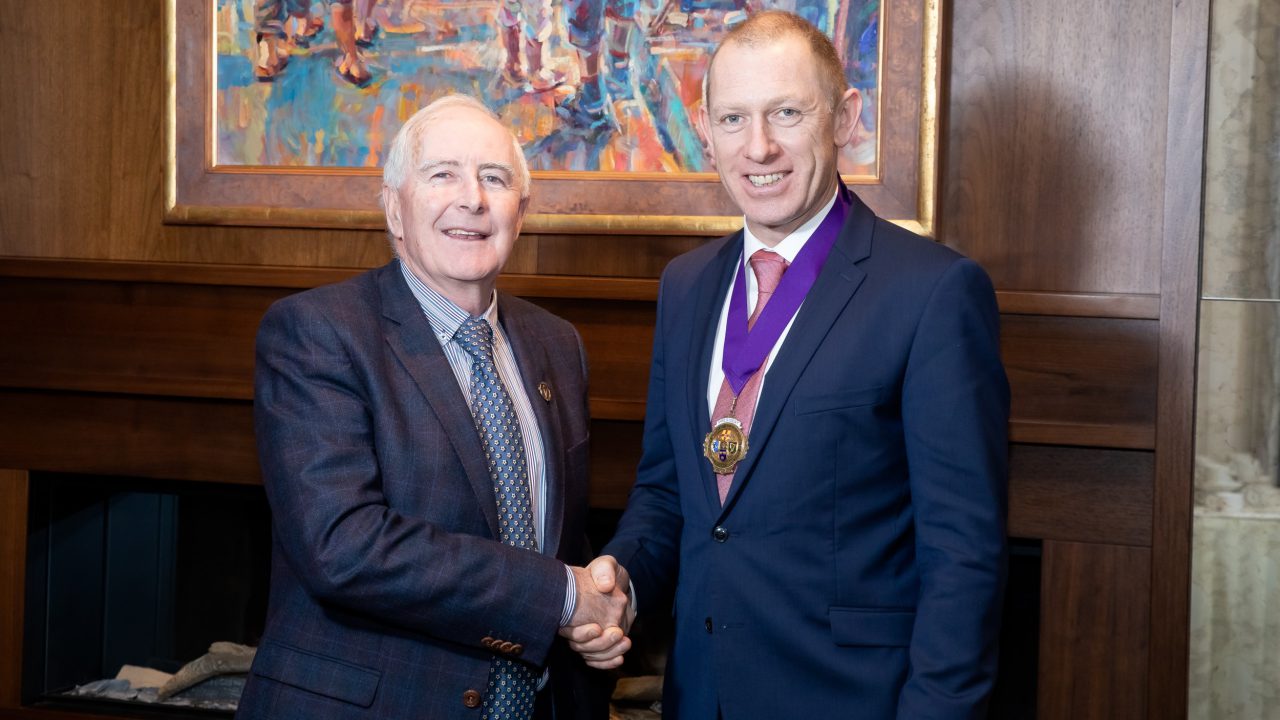The new president of Veterinary Ireland has stated that “eradication means eradication”, speaking about the efforts to make Ireland TB-free.
Conor Geraghty formally took up the reins of the organisation today, Friday, November 22 at its 2019 AGM and Conference in Mullingar, Co. Westmeath.
Speaking to AgriLand at the event, Geraghty highlighted the importance of the “numbers not being fudged”.
The essential thing from our point of view as scientists is that eradication means eradication, and that they don’t start fudging the numbers so that a clear herd is one that only has one animal with TB.
“From our perspective, we don’t want people fudging the numbers just to make it look like they’re achieving targets that they’re actually not,” he commented.
“Because we had that before with brucellosis back in the 90’s, and then all of a sudden we were gone back to square one again…eventually we grasped the nettle and did it properly and scientifically, and eventually got free after 10 years, and I think that’s the way to do it [with TB],” Geraghty stressed.
He added that the Government’s target of achieving eradication by 2030 may not be realistic, and that several proposed measures for doing so lack support among farmer organisations.
Veterinary practice ownership
On the issue of private ownership of veterinary practices by non-veterinary entities, Geraghty commented: “Running a veterinary practice means providing a service to your clients. Some elements of that service don’t make business sense.
Some things you have to do as a professional. You provide 24-hour care. Does it pay me to have five vets or six vets there just to cover nights or weekends were you mightn’t get a call at all from June to October? No, it doesn’t, but you have to do it and you factor it in as part of what you do.
“If you’re in a hedge-fund backed board of directors in the UK or America, I can’t see how it would add any value. We’ve seen out-of-hours fees of €500 for a call out,” he said.
These particular practices might “provide the service in theory” Geraghty added, but, he argued, “they will price it out”.
He continued: “I know from personal experience, if a farmers calls you at 3:00am, and you come out and do a job, that’s a service they depend on. That’s were your loyalty comes from, as a member of the community.
I think if we lose that model, it would be retrograde step, and I wouldn’t want to be a farmer who didn’t have an out-of-hours veterinary service.
Geraghty argued that corporately-owned practices of this type would ultimately lead to a more expensive service.
However, he did also argue that the veterinary sector in Ireland needed “a bit of a restructuring”, as they are “too small and fragmented” and needed to be “facilitated to grow and thrive”.
